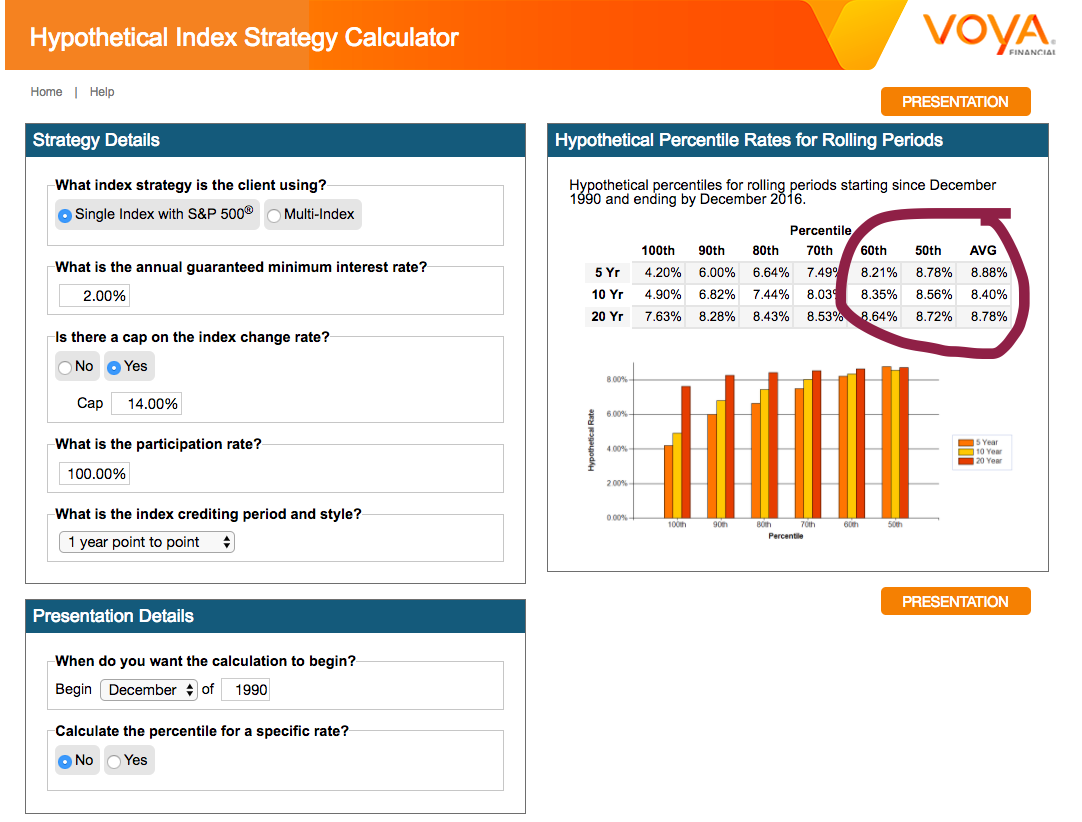All Categories
Featured
Table of Contents
1), usually in an effort to defeat their classification standards. This is a straw man argument, and one IUL individuals love to make. Do they compare the IUL to something like the Vanguard Overall Supply Market Fund Admiral Shares with no tons, an expense proportion (EMERGENCY ROOM) of 5 basis points, a turnover proportion of 4.3%, and an exceptional tax-efficient document of distributions? No, they contrast it to some terrible proactively handled fund with an 8% load, a 2% EMERGENCY ROOM, an 80% turnover proportion, and a dreadful record of short-term funding gain distributions.
Shared funds typically make yearly taxable distributions to fund owners, also when the value of their fund has gone down in value. Shared funds not only need revenue coverage (and the resulting annual tax) when the mutual fund is going up in value, however can also impose earnings tax obligations in a year when the fund has decreased in worth.
That's not how mutual funds function. You can tax-manage the fund, harvesting losses and gains in order to lessen taxed circulations to the investors, yet that isn't somehow going to change the reported return of the fund. Just Bernie Madoff types can do that. IULs prevent myriad tax catches. The possession of shared funds may require the common fund proprietor to pay approximated taxes.

IULs are easy to position so that, at the proprietor's death, the beneficiary is not subject to either income or estate taxes. The same tax decrease strategies do not work virtually also with mutual funds. There are countless, typically pricey, tax traps linked with the moment trading of shared fund shares, catches that do not use to indexed life Insurance.
Opportunities aren't really high that you're going to undergo the AMT because of your mutual fund distributions if you aren't without them. The rest of this one is half-truths at finest. While it is real that there is no revenue tax obligation due to your successors when they acquire the profits of your IUL plan, it is also real that there is no earnings tax obligation due to your heirs when they acquire a common fund in a taxed account from you.
Iul Pros And Cons
The federal estate tax obligation exemption restriction is over $10 Million for a couple, and expanding annually with inflation. It's a non-issue for the substantial majority of medical professionals, a lot less the rest of America. There are much better means to avoid estate tax problems than buying investments with reduced returns. Shared funds might create revenue taxes of Social Protection advantages.

The growth within the IUL is tax-deferred and might be taken as tax totally free revenue through finances. The plan proprietor (vs. the common fund supervisor) is in control of his or her reportable income, therefore enabling them to lower and even remove the taxation of their Social Safety advantages. This one is great.
Right here's an additional marginal concern. It holds true if you buy a mutual fund for claim $10 per share prior to the circulation date, and it disperses a $0.50 distribution, you are after that going to owe taxes (probably 7-10 cents per share) despite the fact that you haven't yet had any gains.
In the end, it's truly concerning the after-tax return, not how much you pay in taxes. You're likewise probably going to have even more money after paying those tax obligations. The record-keeping needs for possessing common funds are significantly much more complex.
With an IUL, one's documents are maintained by the insurance provider, duplicates of yearly declarations are sent by mail to the owner, and distributions (if any kind of) are amounted to and reported at year end. This is additionally type of silly. Naturally you ought to keep your tax documents in case of an audit.
Universal Life Option A
All you have to do is shove the paper into your tax folder when it reveals up in the mail. Hardly a factor to get life insurance coverage. It's like this person has never bought a taxed account or something. Common funds are typically component of a decedent's probated estate.
In enhancement, they undergo the delays and expenses of probate. The proceeds of the IUL plan, on the various other hand, is always a non-probate distribution that passes outside of probate directly to one's called beneficiaries, and is as a result not subject to one's posthumous financial institutions, unwanted public disclosure, or comparable delays and costs.
We covered this under # 7, but just to wrap up, if you have a taxable common fund account, you should put it in a revocable trust fund (or even easier, make use of the Transfer on Death classification) in order to prevent probate. Medicaid disqualification and lifetime earnings. An IUL can supply their proprietors with a stream of earnings for their entire life time, despite how long they live.

This is helpful when arranging one's events, and converting possessions to earnings prior to a retirement home confinement. Common funds can not be converted in a comparable way, and are generally taken into consideration countable Medicaid assets. This is an additional dumb one advocating that bad people (you recognize, the ones that require Medicaid, a government program for the bad, to pay for their retirement home) should use IUL rather than mutual funds.
What Is A Guaranteed Universal Life Insurance Policy
And life insurance policy looks terrible when compared fairly versus a pension. Second, individuals who have money to purchase IUL above and past their pension are mosting likely to have to be terrible at taking care of money in order to ever certify for Medicaid to spend for their assisted living facility costs.
Persistent and incurable illness cyclist. All plans will certainly enable a proprietor's easy access to cash from their policy, often forgoing any surrender charges when such people experience a serious ailment, require at-home care, or become restricted to a retirement home. Shared funds do not supply a comparable waiver when contingent deferred sales costs still put on a common fund account whose proprietor requires to market some shares to money the expenses of such a remain.
Index Life Insurance Companies
You get to pay even more for that benefit (rider) with an insurance plan. What a terrific offer! Indexed global life insurance policy supplies death benefits to the recipients of the IUL proprietors, and neither the proprietor nor the beneficiary can ever lose cash because of a down market. Shared funds offer no such guarantees or survivor benefit of any kind of kind.
Now, ask yourself, do you actually need or desire a survivor benefit? I absolutely don't need one after I get to economic freedom. Do I want one? I expect if it were economical sufficient. Certainly, it isn't affordable. On average, a buyer of life insurance policy spends for real price of the life insurance coverage advantage, plus the prices of the policy, plus the earnings of the insurer.
Best Indexed Universal Life Insurance Companies
I'm not entirely sure why Mr. Morais included the whole "you can't lose money" once more here as it was covered rather well in # 1. He simply wished to duplicate the most effective selling point for these points I expect. Again, you do not lose nominal dollars, but you can lose actual bucks, as well as face major chance expense as a result of low returns.

An indexed global life insurance policy plan owner may trade their policy for an entirely different plan without activating revenue tax obligations. A mutual fund proprietor can not move funds from one shared fund company to another without offering his shares at the previous (hence setting off a taxed event), and buying brand-new shares at the latter, often based on sales fees at both.
While it holds true that you can trade one insurance policy for one more, the reason that individuals do this is that the initial one is such a horrible policy that also after acquiring a brand-new one and experiencing the early, unfavorable return years, you'll still come out in advance. If they were marketed the best policy the initial time, they shouldn't have any kind of wish to ever exchange it and go through the very early, negative return years again.
Latest Posts
How To Get Out Of Universal Life Insurance
Universal Life Insurance Reviews
Universal Life Insurance Cost Calculator